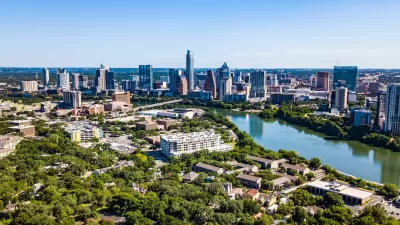Can a Democratic governor in a state controlled by a Republic legislature achieve meaningful emissions reductions from the state's energy utilities? North Carolina Governor Gary Cooper is trying.

James Bruggers reports on the changes in North Carolina in since January 2017, when Governor Gary Cooper took office:
After replacing a Republican who questioned whether climate change was caused by human activities, Democratic Gov. Roy Cooper has testified before Congress on North Carolina's sizable climate challenges and unveiled a draft clean energy plan designed to put the state on a path toward eliminating carbon emissions from the power sector by mid-century.
The state's Republic legislature has forced Governor Cooper and allies on matters of climate policy to seek short-term wins and work-arounds, however.
The example that informs Bruggers's reporting centers around Duke Energy, the biggest utility in the state, which has developed solar power for use in the state but still largely relies on coal and natural gas. A clean energy plan championed by Governor Cooper would require Duke to go further in reducing emissions from electricity generation.
Here's where the "work-arounds" referenced by Bruggers comes in. Should legislators balk at Cooper's clean energy plan, it's becoming evident that state regulators could decide to clamp down on Duke's emissions anyways.
In addition to detailing some of the initial actions of the state in siding with the governor and pressuring Duke to target more aggressive carbon emissions reduction, the article also includes a lot more detail on the components of the governor's clean energy plan.
FULL STORY: A Southern Governor's Climate and Clean Energy Plan Aims for Zero Emissions

Planetizen Federal Action Tracker
A weekly monitor of how Trump’s orders and actions are impacting planners and planning in America.

Congressman Proposes Bill to Rename DC Metro “Trump Train”
The Make Autorail Great Again Act would withhold federal funding to the system until the Washington Metropolitan Area Transit Authority (WMATA), rebrands as the Washington Metropolitan Authority for Greater Access (WMAGA).

DARTSpace Platform Streamlines Dallas TOD Application Process
The Dallas transit agency hopes a shorter permitting timeline will boost transit-oriented development around rail stations.

LA County Creating Action Plan to Tackle Extreme Heat
Los Angeles County is creating a Heat Action Plan to help communities stay safe during extreme heat, with steps like adding more shade, improving buildings, and supporting the neighborhoods most at risk.

Maryland Plans Quick-Build Complete Streets Projects
The state will use low-cost interventions to improve road safety in five Maryland counties.

Downtown Los Angeles Gears Up for Growth
A new report highlights Downtown L.A.’s ongoing revival through major housing projects, adaptive reuse, hospitality growth, and preparations for global events in the years ahead.
Urban Design for Planners 1: Software Tools
This six-course series explores essential urban design concepts using open source software and equips planners with the tools they need to participate fully in the urban design process.
Planning for Universal Design
Learn the tools for implementing Universal Design in planning regulations.
City of Charlotte
Municipality of Princeton
Roanoke Valley-Alleghany Regional Commission
City of Camden Redevelopment Agency
City of Astoria
Transportation Research & Education Center (TREC) at Portland State University
US High Speed Rail Association
City of Camden Redevelopment Agency
Municipality of Princeton (NJ)





























